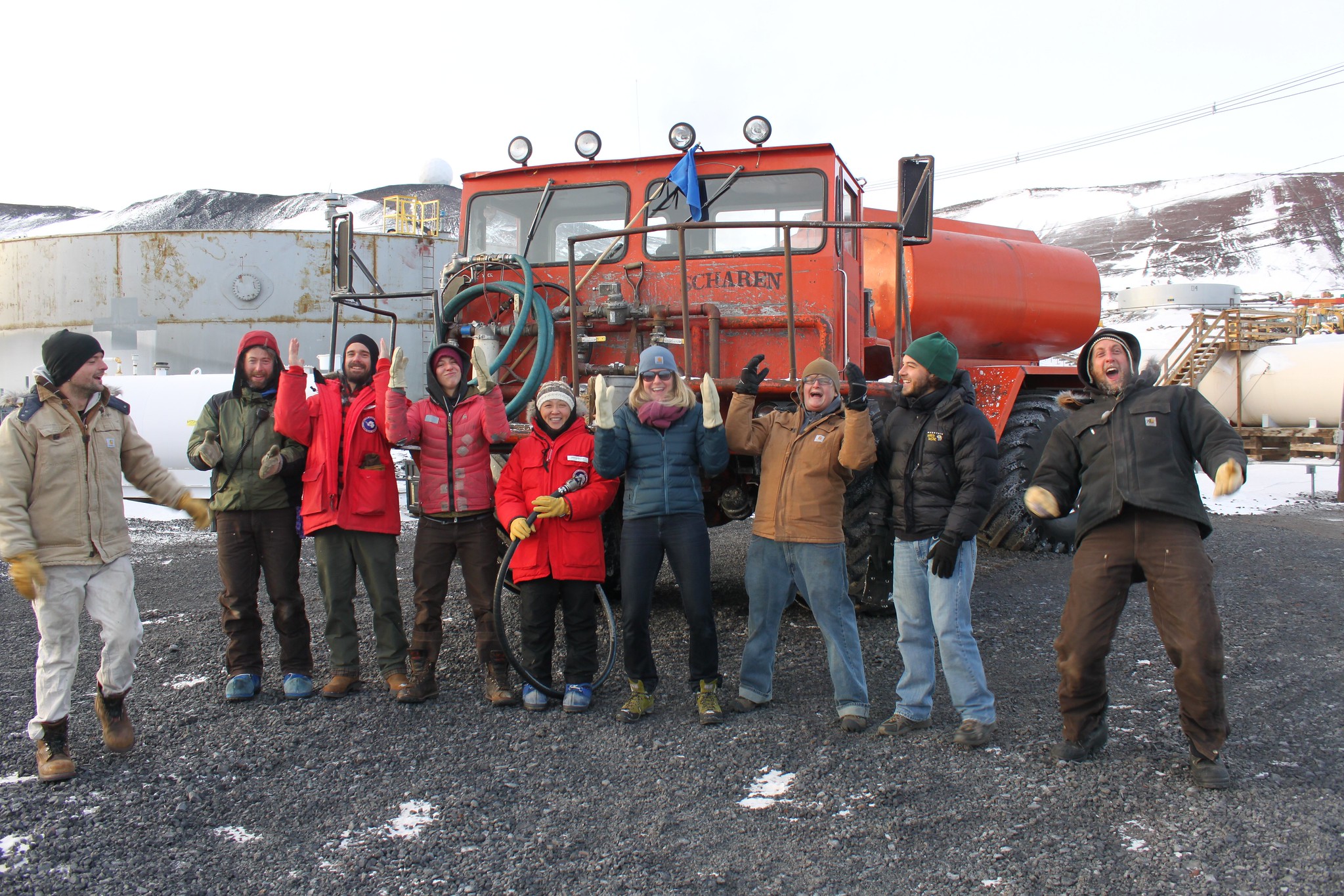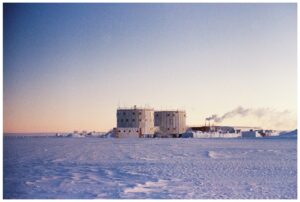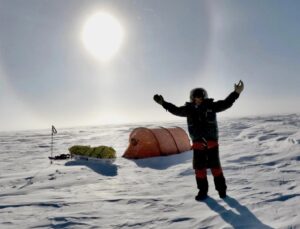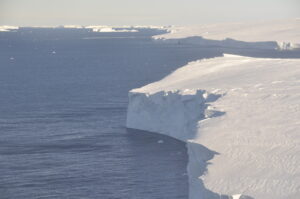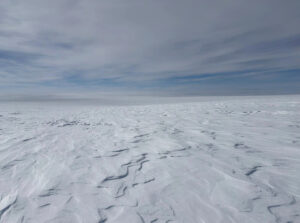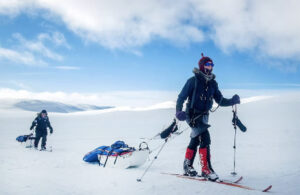Hey Antarctic newbie, are you a “fingee” or a “fidlet?” And what are those on your feet — “bunny boots” or mukluks?
If you were a new transplant to Antarctic shores, it would be understandable if you didn’t know. In fact, the people slinging the opaque lingo would prefer you didn’t, according to a researcher who investigated the topic.
But — to get the answers, all you’d have to do is refer to your trusty Antarctic Dictionary.
The manual was part of an opportunistic PhD project by the University of Canterbury’s Dr. Steph Kaefer. On a 2019 visit to Antarctica, Kaefer’s ear for linguistics perked up when she heard veterans dropping what sounded like totally novel words.
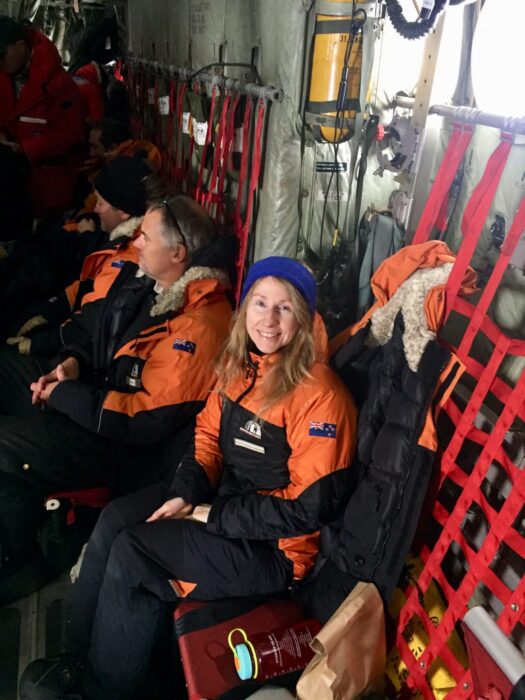
Kaefer on “The Ice” — continental American slang term for Antarctica. Photo: University of Canterbury
What was a fingee, anyway? And why, whenever the topic was ground transportation, did it suddenly swing into the realm of “doo?”
A fingee, Kaefer found out, was an American adaptation of the acronym F.N.G. — an unsavory military term for a “[expletive] new guy.” Brits, on the other hand, called new arrivals fidlets. This was an acronym, too, albeit a more straight-laced one. Falkland Islands Dependency was the name of the British station from which it derived.
Hiding your meaning from newcomers
Kaefer’s study revolved around a core tenet of linguistic synthesis: When you don’t want outsiders to know what you’re talking about, invent slang.
“Often, when we create words, we make them transparent,” Kaefer told the University. “Particularly in a situation where you need to pass on a lot of information easily, you want people to understand without needing much background information. But when you’re creating a community, whether intentionally or not, and you don’t want people to understand, you might make the words more opaque so that people can’t work them out unless they’re part of that group.”
Because Antarctic communities are so isolated, their offbeat lingo grabs hold even tighter. People working on “The Ice” (as Americans would say) or “South” (British) don’t enjoy open lines of contact with outsiders, whether it’s workers in other stations or their families back home.
Due to this, lingual customs make deep treadmarks.
Which, incidentally, is also a quality of Antarctic “doos” — or snow machines, in British continental slang.
